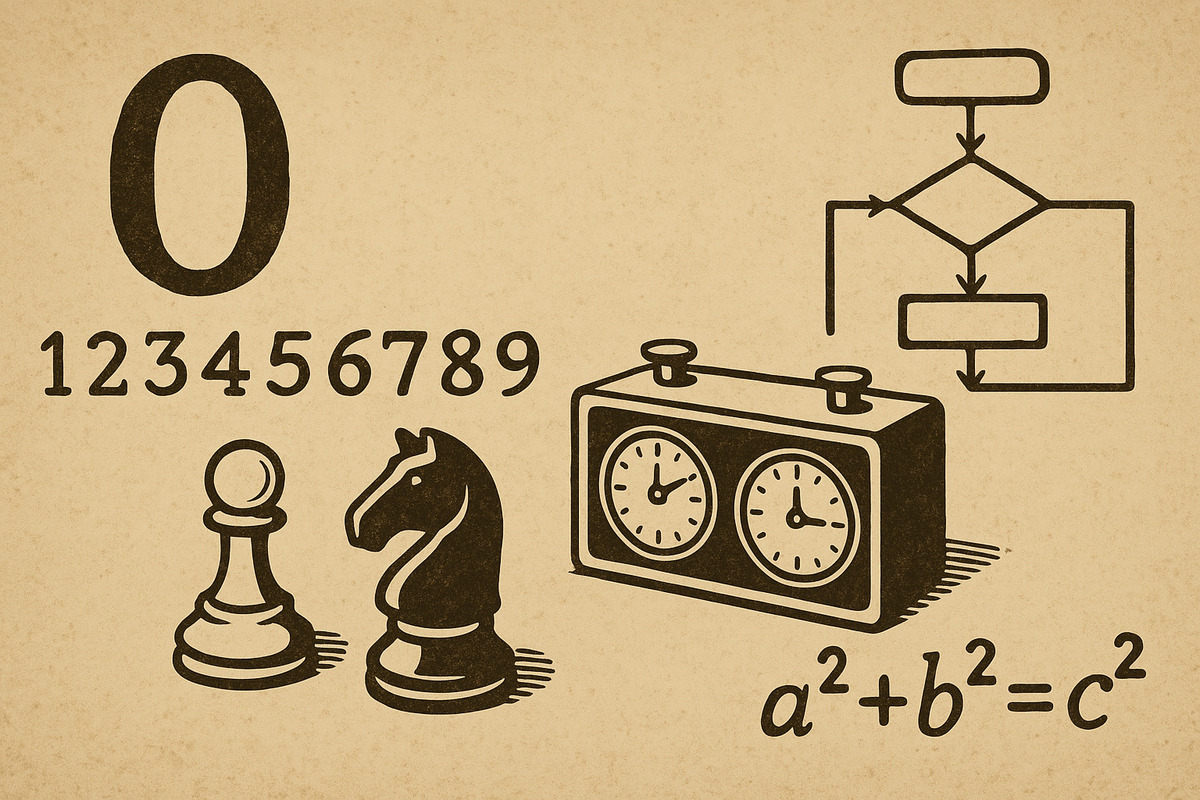
Ancient India fostered a brilliant tradition of thought that advanced human understanding of mathematics and logic. The journey from early numerical systems to modern logic games illustrates the depth of creativity and analytical thinking that has long been a part of Indian culture. This article outlines the evolution of ideas from the invention of zero to the intricacies of contemporary algorithm-based puzzles.
Ancient Foundations and Mathematical Innovations
Indian mathematicians laid the groundwork for many concepts that shape today’s scientific and logical pursuits. Early scholars formulated systems that provided a structure for arithmetic, algebra, and geometry. Their work included:
- The Concept of Zero: Indian thinkers introduced the notion of zero as both a placeholder and a number in its own right, allowing for more complex calculations.
- Numerical Systems: The development of a decimal system changed the way calculations were performed and recorded, influencing trade, astronomy, and daily life.
- Algebraic Techniques: Early explorations in solving equations and systematic methods to work with unknowns signaled a deeper understanding of abstract thought.
These contributions fostered a climate of intellectual growth and a methodical approach to problem-solving that resonates in modern times.
Medieval and Pre-Modern Contributions
During the medieval period, Indian scholars compiled extensive treatises that synthesized earlier insights with new observations. Their writings included works on trigonometry and advanced arithmetic, which later found echoes in European mathematical studies. Scholars presented their ideas through texts that were widely translated and commented upon, ensuring that the seeds planted in India would sprout across continents.
Key achievements from this era include:
- Compilation of Mathematical Texts: Detailed manuscripts recorded the evolving techniques in mathematics and served as guides for further inquiry.
- Interplay of Theory and Application: Indian intellectuals were not only theorists but also practical problem solvers who applied mathematical concepts to architecture, astronomy, and engineering.
- Cultural Exchange: The interaction between different regions of the subcontinent and beyond helped in refining and spreading these innovative ideas.
The Transition to Modern Logic and Algorithm Games
Modern logic games and puzzles owe much to the rigorous analytical methods developed in ancient India. The transition from abstract numerical theories to concrete puzzles demonstrates how centuries-old concepts have been reinterpreted to entertain and challenge the mind.
- Algorithmic Thinking: The step-by-step methods inherent in ancient arithmetic paved the way for the formulation of algorithms. Today, algorithms are at the heart of computer science and digital puzzles.
- Logic Puzzles: The intellectual tradition emphasizes structured problem-solving. Modern puzzles often require players to use reasoning that mirrors the systematic approaches of early mathematicians.
- Game Theory and Strategy: The ideas of strategy and decision-making have been refined over time. For instance, chess is a strategic game with Indian roots; its evolution reflects deep analytical traditions, and the integration of a chess clock adds a modern twist that sharpens the pace of play.
Contributions and Lasting Impact
The evolution of mathematical thought in India has had a sustained impact on various fields. The enduring principles of logical reasoning have influenced disciplines as diverse as engineering, computer science, and recreational puzzles. Notable impacts include:
- Influence on Global Mathematics: The techniques pioneered in ancient India became building blocks for further discoveries worldwide.
- Practical Applications: The principles of Indian mathematics are visible in everyday technologies, from mobile applications to the design of efficient algorithms.
- Cultural Legacy: The intellectual achievements of India serve as a reminder of the universal power of human ingenuity and the potential for ideas to transcend time and geography.
Reflections on the Journey
Tracing the lineage from ancient mathematical treatises to modern logic games reveals a fascinating continuum of human thought. The early contributions of Indian scholars provided the conceptual tools that enabled later generations to build intricate systems of logic and computation. Each stage in this historical progression represents a chapter in a larger narrative of intellectual pursuit and creative problem-solving.
- Ancient Beginnings: Laying down the building blocks of mathematics and abstract reasoning.
- Medieval Flourish: Refining and expanding upon those initial ideas in comprehensive texts.
- Modern Reinterpretation: Applying age-old principles to contemporary puzzles and digital challenges.
The narrative of Indian intellectual heritage offers insight into the profound impact of ancient innovations on today’s structured problem-solving and strategic games. The evolution of these ideas underscores a timeless dialogue between tradition and modernity, where historical insights continue to inform and inspire new forms of analytical entertainment.


